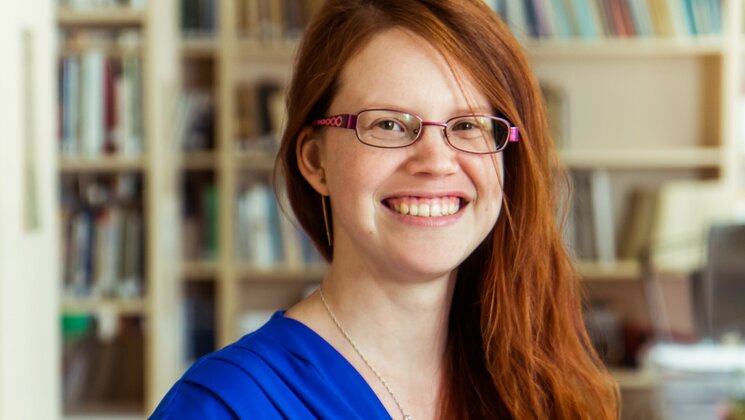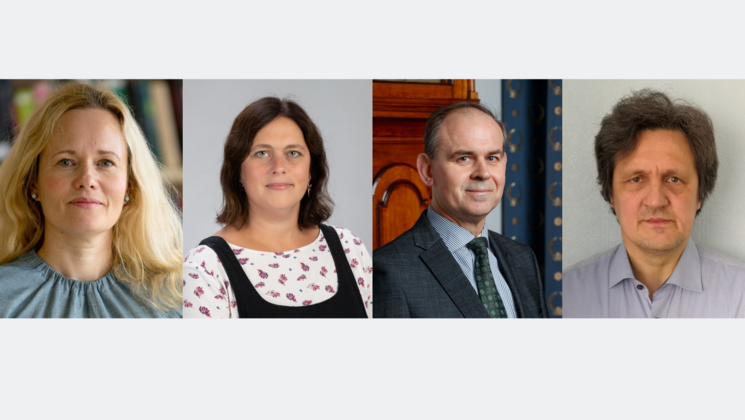-
Faculty of Arts and HumanitiesJakobi 2, r 116-121 51005 Tartu linn, Tartu linn, Tartumaa ESTJakobi 2 51005 Tartu linn, Tartu linn, Tartumaa ESTJakobi 2, IV korrus 51005 Tartu linn, Tartu linn, Tartumaa ESTJakobi 2, III korrus, ruumid 302-337 51005 Tartu linn, Tartu linn, Tartumaa ESTÜlikooli 16 51003 Tartu linn, Tartu linn, Tartumaa ESTLossi 3 51003 Tartu linn, Tartu linn, Tartumaa ESTÜlikooli 18 50090 Tartu linn, Tartu linn, Tartumaa ESTPosti 1 71004 Viljandi linn, Viljandimaa ESTJakobi 2 51005 Tartu linn, Tartu linn, Tartumaa ESTJakobi 2 51005 Tartu linn, Tartu linn, Tartumaa ESTFaculty of Social SciencesLossi 36 51003 Tartu linn, Tartu linn, Tartumaa ESTJakobi 5 51005 Tartu linn, Tartu linn, Tartumaa ESTLossi 36, ruum 301 51003 Tartu linn, Tartu linn, Tartumaa ESTNarva mnt 18 51009 Tartu linn, Tartu linn, Tartumaa ESTNäituse 2 50409 Tartu linn, Tartu linn, Tartumaa ESTNäituse 20 - 324 50409 Tartu linn, Tartu linn, Tartumaa ESTLossi 36 51003 Tartu linn, Tartu linn, Tartumaa ESTRaekoja plats 2 20307 Narva linn, Ida-Virumaa ESTRingi 35 80012 Pärnu linn, Pärnu linn, Pärnumaa ESTLossi 36 51003 Tartu linn, Tartu linn, Tartumaa ESTLossi 36 51003 Tartu linn, Tartu linn, Tartumaa ESTFaculty of MedicineRavila 19 50411 Tartu linn, Tartu linn, Tartumaa ESTBiomeedikum, Ravila 19 50411 Tartu linn, Tartu linn, Tartumaa ESTNooruse 1 50411 Tartu linn, Tartu linn, Tartumaa ESTL. Puusepa 1a 50406 Tartu linn, Tartu linn, Tartumaa ESTL. Puusepa 8 50406 Tartu linn, Tartu linn, Tartumaa ESTRavila 19 50411 Tartu linn, Tartu linn, Tartumaa ESTUjula 4 51008 Tartu linn, Tartu linn, Tartumaa ESTRavila 50411 Tartu linn, Tartu linn, Tartumaa ESTRavila 19 50411 Tartu linn, Tartu linn, Tartumaa ESTFaculty of Science and TechnologyVanemuise 46 - 208 51003 Tartu linn, Tartu linn, Tartumaa ESTNarva mnt 18 51009 Tartu linn, Tartu linn, Tartumaa ESTRiia 23b/2 51010 Tartu linn, Tartu linn, Tartumaa ESTRavila 14a 50411 Tartu linn, Tartu linn, Tartumaa ESTNarva mnt 18 51009 Tartu linn, Tartu linn, Tartumaa ESTRiia 23, 23b - 134 51010 Tartu linn, Tartu linn, Tartumaa ESTObservatooriumi 1 61602 Tõravere alevik, Nõo vald, Tartumaa ESTNooruse 1 50411 Tartu linn, Tartu linn, Tartumaa ESTJ. Liivi tn 2 50409 Tartu linn, Tartu linn, Tartumaa ESTVanemuise 46 51003 Tartu linn, Tartu linn, Tartumaa ESTVanemuise 46 51003 Tartu linn, Tartu linn, Tartumaa ESTArea of Academic SecretaryLossi 3 51003 Tartu linn, Tartu linn, Tartumaa ESTUppsala 6, Lossi 36 51003 Tartu linn, Tartu linn, Tartumaa ESTArea of Head of FinanceÜlikooli 17 51005 Tartu linn, Tartu linn, Tartumaa ESTArea of Director of AdministrationÜlikooli 18A (III korrus) 51005 Tartu linn, Tartu linn, Tartumaa ESTÜlikooli 18, ruumid 102, 104, 209, 210 50090 Tartu linn, Tartu linn, Tartumaa ESTArea of Vice Rector for DevelopmentNarva mnt 18 51009 Tartu linn, Tartu linn, Tartumaa ESTVanemuise 46 51003 Tartu linn, Tartu linn, Tartumaa ESTLossi 25 51003 Tartu linn, Tartu linn, Tartumaa ESTArea of RectorArea of Vice Rector for Academic AffairsUppsala 10 51003 Tartu linn, Tartu linn, Tartumaa ESTÜlikooli 18b 51005 Tartu linn, Tartu linn, Tartumaa ESTArea of Vice Rector for ResearchW. Struve 1 50091 Tartu linn, Tartu linn, Tartumaa EST
New research project tackles the ethical challenges of Open Science
University of Tartu Associate Professor of Practical Philosophy Kadri Simm participates in a new research project “ROSiE” of the EU Framework Programme for Research and Innovation Horizon 2020, which focuses on the critical analysis of ethical, philosophical and interdisciplinary principles of Open Science.![]()
The introductive text of ROSiE states, that Open Science (OS) where research planning, processes, data and results are freely available to all stakeholders is the future of science. OS will make science more effective and more responsive to societal needs, and it will enable citizens to participate actively in all aspects of science as citizen scientists.
“The principles of Open Science are very important because they help to share scientific data, improve science and make it more transparent,” says Kadri Simm, the Associate Professor of Practical Philosophy at the University of Tartu. The project description explains that research misconduct and questionable research practices occur in our current scientific processes, and it is likely that similar or new forms of misconduct and questionable practices will emerge in OS. It is therefore important to identify and analyse the potential for misconduct in various areas of OS practice and in different scientific disciplines.
"Research fields have very different traditions, methods and practices, and the same framework does not always suit all of them equally well," says Simm. She gives an example, that there is a big difference between sharing anonymised statistics or ethnographic stories collected using qualitative methods with the public. "This raises both philosophical and ethical issues, such as the protection of subjects, and we here at the department of philosophy together with our international partners will begin to analyse that in this new research project," explains Simm why the new project focuses on issues of research ethics, good science and misconduct.
The purpose of the project “Responsible Open Science in Europe” (ROSiE) is to identify and analyse current ethical, social and legal approaches to responding to questionable practices. In addition, ROSiE will develop practical tools aimed at ensuring ERI in OS and citizen science (CS).*, It is only based on such an analysis that the European science system can effectively ensure that ethics and research integrity (ERI) becomes a structural component of Open Science.
This will be done by a strongly multi-disciplinary project group consisting of world-leading experts and organizations in OS, CS, and ERI. In addition to Estonia (University of Tartu), universities, research institutions and ethics committees of Norway, Austria, Germany, Finland, France, Greece, Portugal and Latvia also participate in the project.
The full title of this project is “Responsible Open Science in Europe”. This project has received funding from the European Union's Horizon 2020 research and innovation programme under the grant agreement No 101006430.
Additional information
Kadri Simm, Associate Professor of Practical Philosophy at the University of Tartu, kadri.simm [ät] ut.ee
* In most broad sense, citizen science could be defined as „scientific work undertaken by members of the general public often in collaboration with or under the direction of professional scientists and scientific institutions“ (Oxford English Dictionary. (2014). Citizen science. Oxford: Oxford University Press.)
Read more similar news





